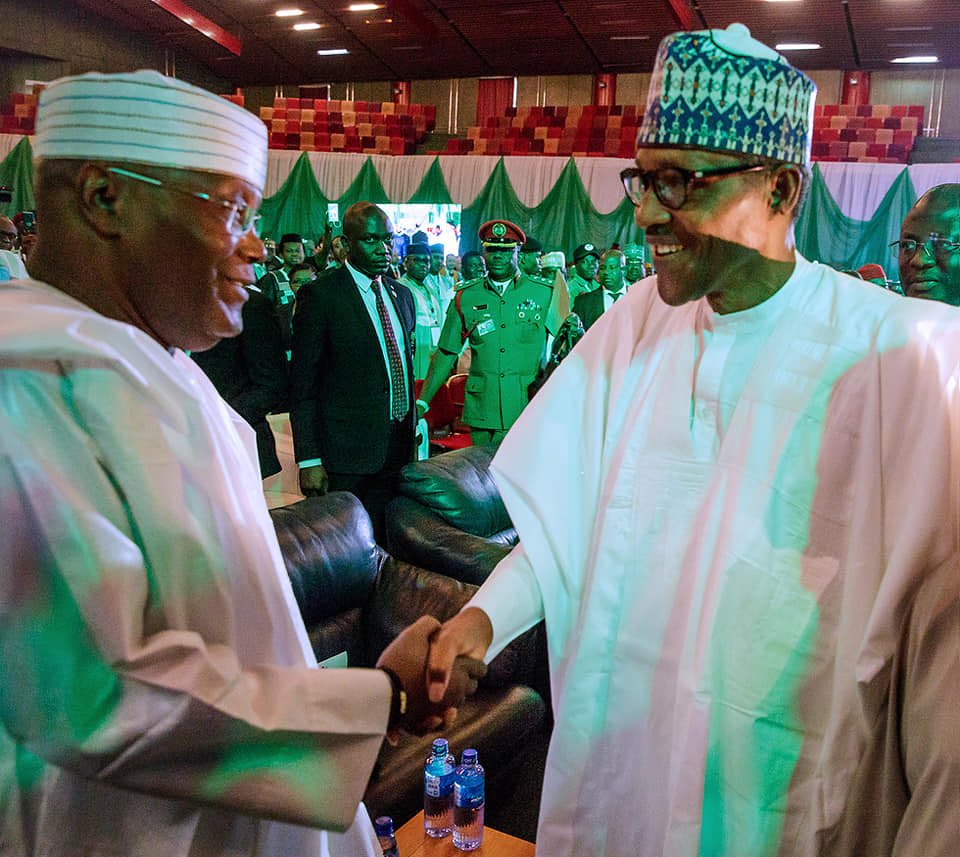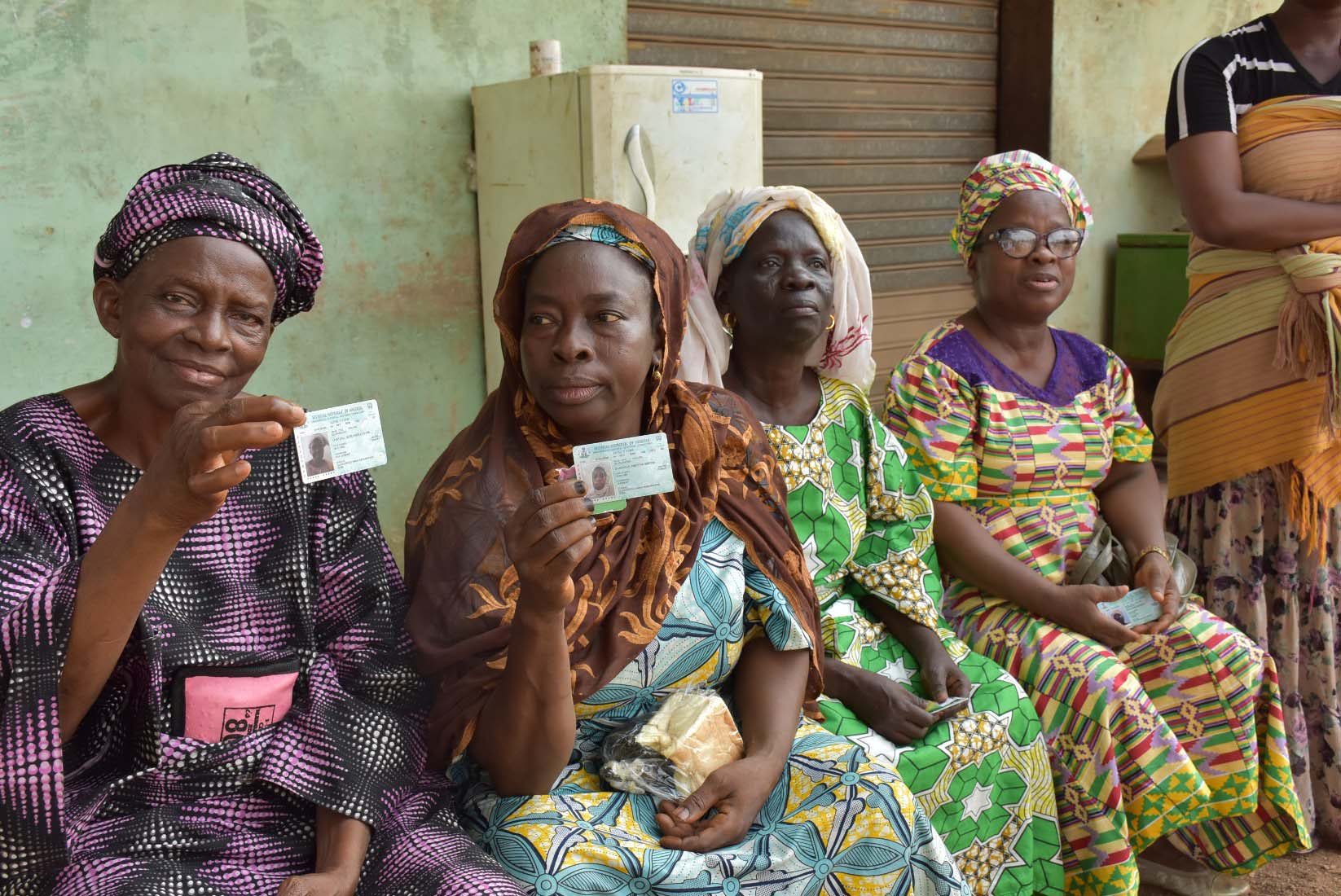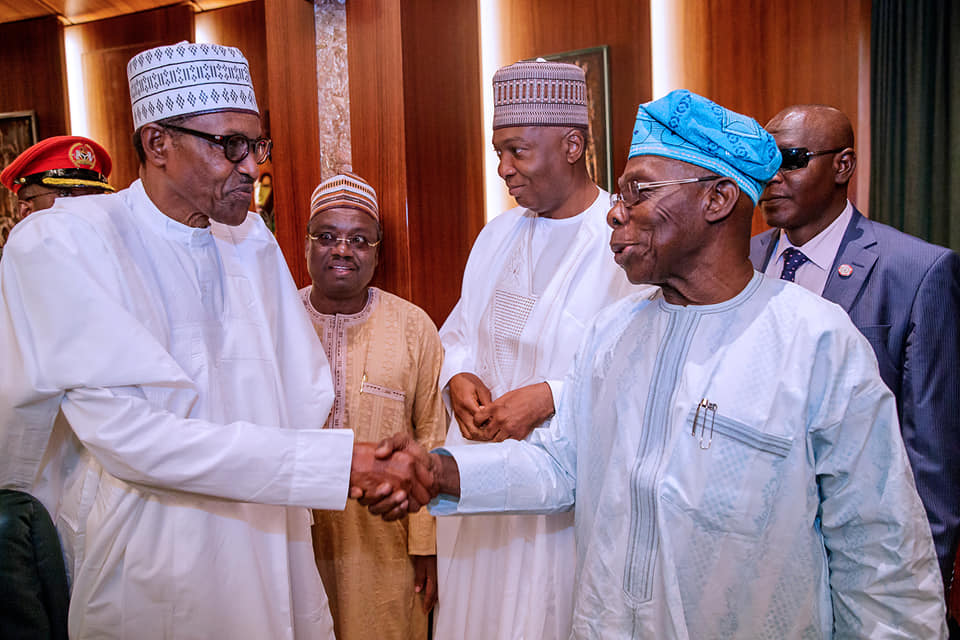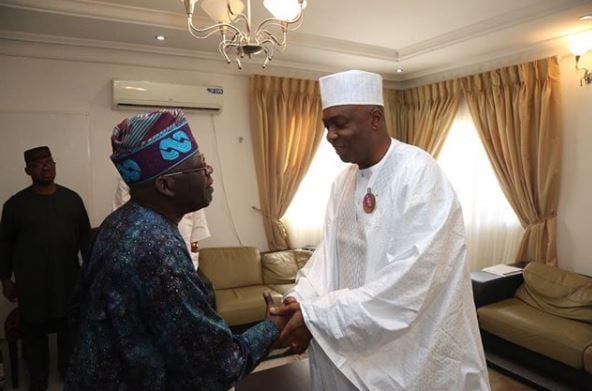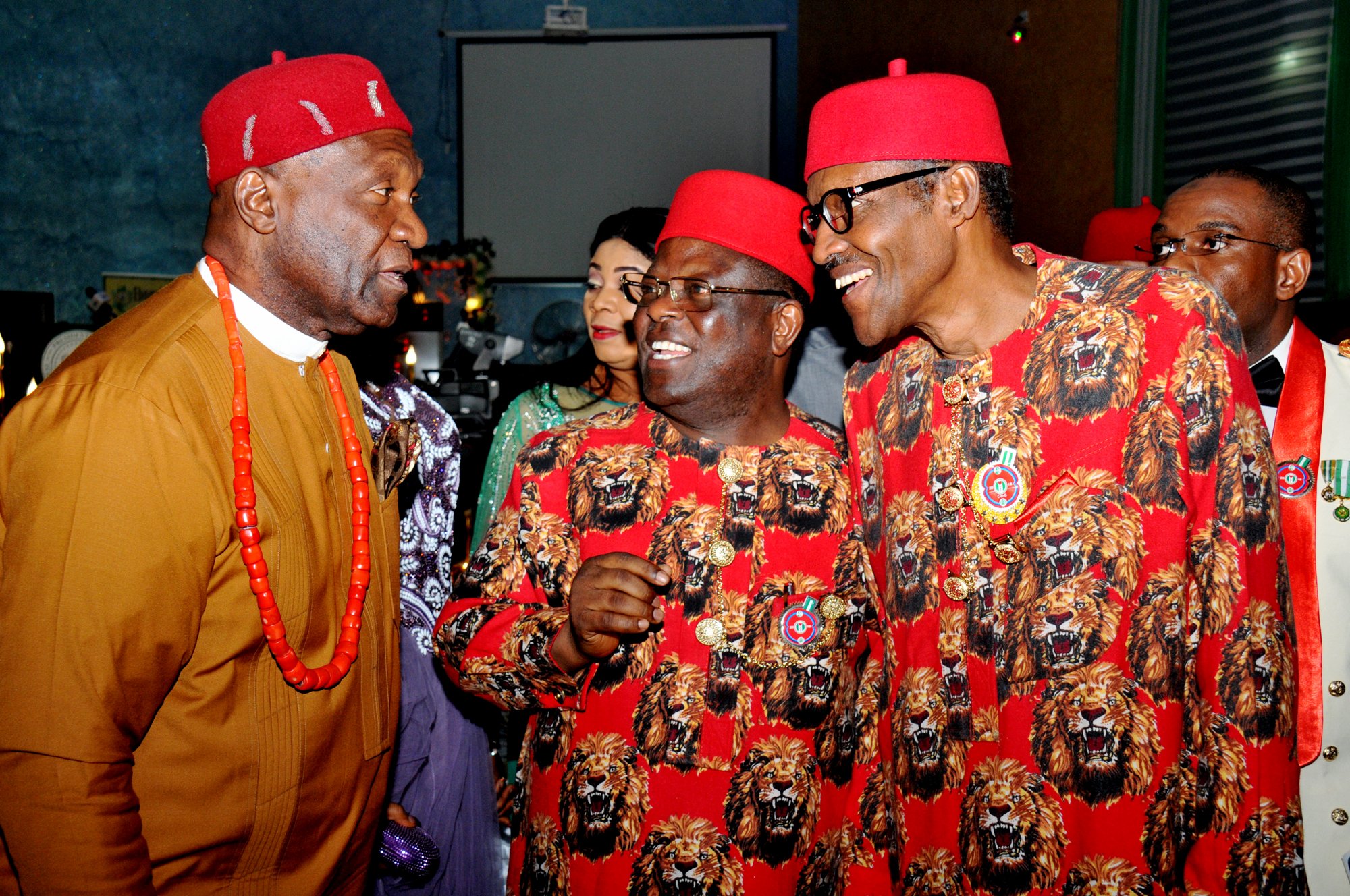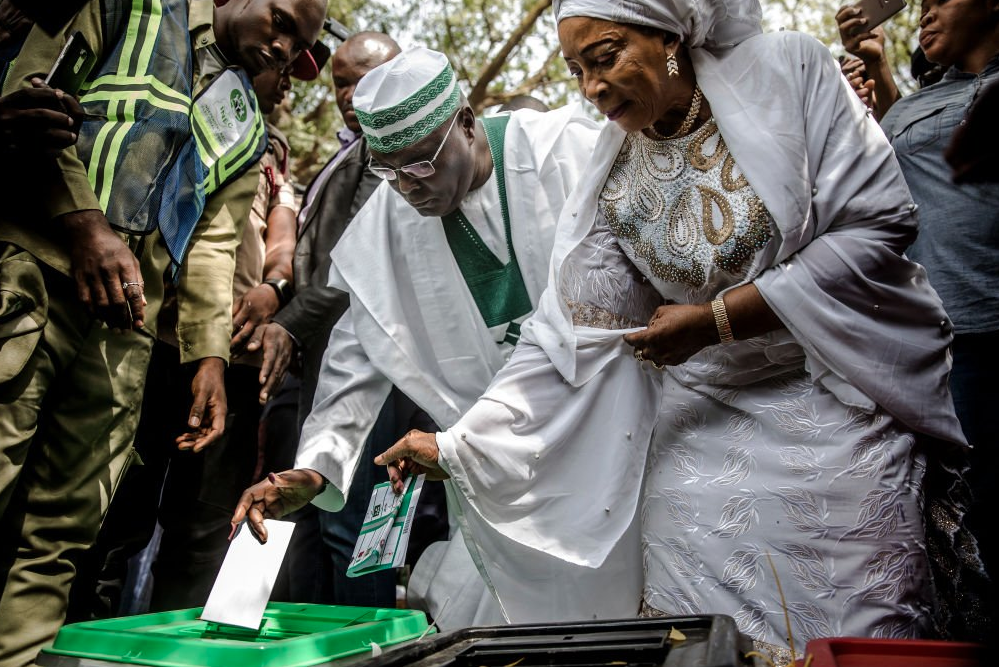Now that we have cast our votes in the presidential and National Assembly elections, results trickling in in droves and we patiently await their final outcome, what next? This is a question that should agitate the mind of every Nigerian this hour. This particular election has come and gone but it leaves in its trail indelible imprints that have very consequential implications for us as a people.
In terms of the setback it has given Nigeria and Nigerians, the negative cost cannot be imagined. Yes, in a couple of days from now, the Independent National Electoral Commission (INEC) will announce the winner of the elections, but will the collateral damage we suffered in emotions, the human casualties, the enmities and hate we infected one another with in the course of advocating where we stand, get any redemption as a result of the results?
In terms of fatalities, a group of 70 civil society organizations (CSOs), the Nigeria Civil Society Situation Room, was quoted to have reported a spiral in politically-motivated killings in the period leading up to the elections. Clement Nwankwo, convener of the organization, said reports across the country show that over 260 Nigerians were killed since the commencement of election campaigns in Nigeria from October 2018 till date. In Borno, a couple of days ago, Boko Haram insurgents also laid ambush to Governor Kashim Shettima’s convoy, killing 60 people, the elections ostensibly at the core of the mindless bloodshed. The casualties were providence’s own way of showing the ephemerality of our electoral pursuits and how death, the leveler, reduces all our earthly aspirations into mere hubris.
The period leading to yesterday was a very trying moment for Nigeria. Granted that elections have always riven people apart, even in democracies that are far advanced than ours, this particular one was spectacular for its divisiveness. Hate speeches flew in the air like pestilence. Politicians stabbed and jabbed one another like miscreants trying to outsmart one another to a stolen chewing gum. Insults and recriminations were freely flung on the streets. Brothers turned against brothers; sisters against themselves and the air of mutual dissent so thick that you could cut a slice off it. Neighbours, suspicious of where the other stood on this momentous journey to choosing who leads Nigeria henceforth to 2023, outdid one another in mutual acts of self-destruction. While all these went on, politicians shouldered heavy sleaze money into their personal accounts, consolidating where they stood and where they will stand in case the chess game which to them election represents, go in their favour. You will be shocked to hear that many of the political parties had already shared governmental positions, even before election.
Advertisement
On the list of the casualties we suffered as a people on the road to the election was the Chief Justice of Nigeria, Walter Onnoghen. The Nigerian judiciary, whose respect and worth had suffered terrible bashes in decades, was finally hit by a cyclone of unimaginable proportion. A few weeks ago, the CJN was flung in the dock like an ordinary felon, castrated no doubt by politics and perhaps, greed. Politics because it was obvious that if Onnoghen had stood in amity with his traducers, he would today be enjoying the comfort of the maggots alleged to surround his hallowed stool. Greed because, either rightly or wrongly, those unearthed maggots oozing out of the CJ’s robe are too disgusting to countenance. But for politics that blinded the presidency’s sense of judgment, methinks details of the maggots ought to have been secretly waved in Onnoghen’s face at a tete-a-tete with the president and thereafter asked to honourably step down, rather than this global tar-brush of Nigeria and its highest echelon of justice.
Two major indices – economy and corruption – were high on the cards. Perhaps because of the parlous economy and the promise or mis-promise of redemption of the country by politicians, Nigerians canvassed where they stood on the political divides with vigour unprecedented. I submit that Nigeria was nowhere located in the equation of electoral consideration as we went into the election yesterday. As federalists always maintain, due to the pseudo federal practice in Nigeria since the collapse of the First Republic, Nigeria has become, borrowing the inscrutable quote of President Muhammadu Buhari, a country for everyone but for no one in particular. In the election that just held, people merely sought the political leader who would change the grueling course of their personal experience of excruciating pains in the hands of a cumulative badly run Nigerian economy.
So also was corruption a very potent referent of decision-making. Trust politicians: though they are the most culpable in the corruption cycle we found ourselves, it was convenient for them to turn around to make same issue a major campaign mantra. Nigerians will be thoroughly shocked if they find out that corruption pervaded the two camps which attempted to beatify themselves publicly in exchange for the people’s votes. Those who were once in government seeking the people’s nod to come back and those who are current tenants of power, no pun intended, have sold their hearts to the biblical Mammon, whose seat of empire is Nigeria, for pittance, so much that they are irredeemably sworn to offer propitiations to this god. When you hear them promise the electorate to fight or stamp out corruption, that statement itself is a very corrupt cliché that should earn its author a judicial sentence. Pardon the heresy: the clay with which providence created the Nigerian politician is watered with the trough of corruption.
Advertisement
One very commendable trait Nigerians demonstrated in the period leading to the election was the vociferous defence of their political stand. A news report a couple of months back was to the effect that a man divorced his wife for supporting Buhari. Because of where they stood, cudgels have been wielded by otherwise gentlemen against one another. The social media, during this period, did the most irreparable damage to the psyche and emotions of Nigerians. Though some of the views were traded due to their political affiliations, there were thousands of people who stood to gain nothing personally from the win of either of the candidates but who fought for them as if their lives depended on it. Sabre-rattling of the most corrosive hue flew right, left and center on the social media; ingenuous and creative posts were made to either demonize or odorize the two presidential contenders – Buhari and Atiku Abubakar. Anyone who supported the former was saint and supporters of the latter were messengers of corruption. Shunned of the low level of hatred and intolerance exhibited, the canvass of politicking was actually desirable, demonstrating how feelings for and against right and wrong were deep-seated in the hearts of Nigerians.
Wherever the electoral pendulum swings in a few days’ time as INEC announces the winner of the election, we will all suffer the consequences of our electoral decisions. If Abubakar is announced president of Nigeria and he begins to play Ali Baba and his gang of thieves on the Nigerian economy, we will suffer the collateral damage arising from our decision to elect him. If, on the reverse, Buhari is elected and he continues to foist on us his Stone Age despotism and crude nepotism, none of us will run to Ghana or Niger Republic; we will all be here and weather the hell of our decision. When you look at the vultures hovering round the two presidential candidates, you will be sorry for Nigeria. These are tested leeches, blood-sucking vermin and naira-thirsty hounds thirsty to devour the Nigerian economy; who will murder their father and rope their mother without batting an eyelid. America is today suffering the consequences of her own decision to vote as president, one of the most divisive American ever, a man who has exposed to the whole world the underbelly and gross limitations of White House’s hitherto held impregnable leadership constitution.
Head or tail, as Nigerians, we cannot run away from the aftermath of the decision we took yesterday. If, conversely, either of Buhari and Abubakar becomes president and Nigeria turns a new leaf for good, with a booming economy and prosperity as consort, her battered integrity suddenly retrieved from the Hades where we flung it and the vermin that daily suck our economy driven to Siberia, we will remember yesterday and be proud of our decision. If you ask me, I don’t see the latter happening. We have voted one of two people whose presence on the ballot box is a calamity ab initio. The UK Guardian put our choice succinctly recently: One between an infernal despot – and I add, a man with a Stone Age understanding of economy and development; and a thief (whether real or imagined). As I have once said however, it would have been self-defeatist or escapist to refrain from voting yesterday. We must choose between these two thrown on our laps by the Nigerian electoral system. So we voted a candidate who, in our very subjective and most times, myopic view (because we are actually not privy to details of the private and public composition of these two aspirants to the presidency of Nigeria, which would have made us take informed stand) will, as the street lingo says, butter our bread.
No matter where the pendulum of the presidential election swings, the Nigerian electorate, throughout the pendency of the campaign and election, demonstrated a deep hunger and commitment to what it believed in. The social media, for instance, was a very fertile ground for the articulation of that thirst. This was however manifested in very crude and most times, incoherent manner. If only the country could be at the base of such thirst for a good society, Nigeria would be on its way to becoming a better country. This is why, not minding whoever gets the nod of INEC to lead Nigeria for the next four years, we must harvest that same thirst, that same articulation and channel them towards a better society. It is only then that the offerings of the last few months of electioneering would not be a waste.
Advertisement
Osinbajo, Adewole and their kill-me-quick placebo
Ace Yoruba comedian, Babatunde Omidina, aka Baba Suwe, has been battling an undisclosed ailment for a while now. Apparently unable to contain the slide in his health and an unavailable cash to keep him alive, his family and friends recently cried out to the public for help. Aside his colleagues in the film industry who came to his aid, Vice President Yemi Osinbajo was quoted to have given him reprieve by donating a million naira to the fund raise to restore Omidina back to good health. A few days ago, Baba Suwe was wheeled to the Lagos University Teaching Hospital (LUTH) on a federal government medical intervention, ostensibly packaged by the minister of health, Prof Isaac Adewole.
We must thank government and government officials who intervene on behalf of vulnerable members of society when they are hit by life’s acrid and piercing arrow of ill health but I submit that this intervention is leaving a more serious affliction of leprosy and seeking to treat a seemingly similar affliction of eczema. We do not need anyone to tell us that access to healthcare in Nigeria is as difficult as a cow seeking to enter the eye of a needle. While hospitals have slid from the mere consulting centres which 1980s coupists claimed was reason for their hijacking political power from politicians, into mortuaries, the only prayer one should diligently offer to one’s creator is not to have cause to be taken to any Nigerian public hospital. Equipment are far between and where they are, are Acheullian age-old and qualified personnel are fleeing the hospitals for greener pastures abroad. Governments at all tiers of government prefer to invest in elephant projects where they can siphon billions of naira, leaving hospitals to decay and gather moss.
Only recently, wife of President Muhammadu Buhari, Aisha shocked the world when she said that even at the Aso Rock Clinic, mere syringe and Panadol were as rare as elephant grass in the desert. One would have thought that this government clinic would be used as a pilot scheme of what first class medicare should look like, so that the president won’t spend hard-earned public money in the United Kingdom. The same story is obtainable in virtually all state hospitals. Doctors’ morale is at the nadir and they exploit every opportunity to subvert government and even their patients. This is why, apart from the absence of thoroughness in all sphere of the Nigerian life that has also afflicted Nigerian hospitals, the incidence of wrong prognosis and the usual apathy of a typical Nigerian worker to work have conspired to make patients of hospitals victims of a system that values its own people seldom. Many people have been killed due to wrong diagnosis in Nigerian hospitals.
So when Osinbajo reportedly gave Baba Suwe a million naira and the minister of health organized free entry for the comedian to access “first class” treatment at LUTH, unfortunately, they are both merely treating placebo and backtracking from the real societal ailment. Rather, they should constitute the building block of a revolution in power to return Nigerian hospitals to what they were pre-and immediately after the Nigerian independence. Our compatriots die daily in those hospitals due to avoidable ailments.
Advertisement
Views expressed by contributors are strictly personal and not of TheCable.
Add a comment

